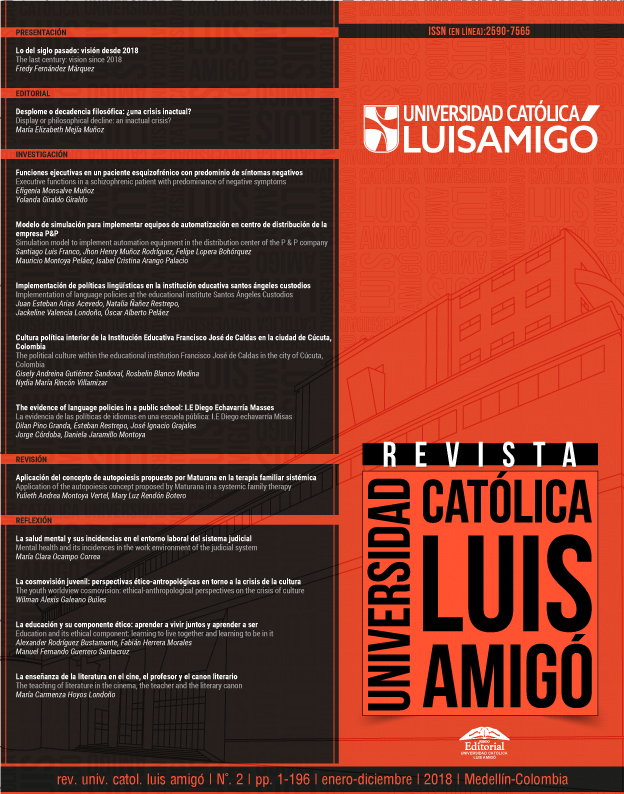Display or philosophical decline: an inactual crisis?
DOI:
https://doi.org/10.21501/25907565.3040Abstract
It is true that, in the Musée d'Orsay, Ónice's work has a glow for its reckless title: "Nature discovering itself before science", but they forget that the first philosophers known as physis philosophers had already built the relationship philosophy-science. For example Democritus, philosophized about the becomings or changes in nature, makes it clear that everything that moves is in constant evolution. With this theory is framed an eternal return between science and philosophy; the changes are constant, and turns are allowed in the views from philosophy as well as from the sciences. They are in a constant becoming together.Downloads
References
Azcárraga, J. A. (2002). Ciencia y filosofía. Documento de trabajo.
Bunge, M. (2016). Filosofía para médicos. Madrid, España: Gedisa.
Colli, G. (2008). La naturaleza ama esconderse. Madrid, España: Biblioteca de Ensayos Siruela.
Deleuze, G. (2008). Dos regímenes de locos. Barcelona, España: Pre-textos.
Hadot, P. (2006). Ejercicios espirituales. Madrid, España: Siruela.
Hadot, P. (2015). El velo de Isis. Barcelona, España: Ediciones Alpha Decay.
Popper, K. (1962). La lógica de la investigación científica. Madrid, España: Tecnos.
Spinoza, B. (2007). Obras completas. Valencia, España: Alianza Editorial.
Downloads
Published
How to Cite
Issue
Section
License
PROPIEDAD INTELECTUAL
Los autores son moral y legalmente responsables del contenido de sus artículos, así como del respeto a los derechos de autor. Por lo tanto, éstos no comprometen en ningún sentido a la Universidad Católica Luis Amigó.
La reproducción de los artículos se regirá conforme a lo descrito en http://creativecommons.org/licenses/by-nc-sa/4.0/

